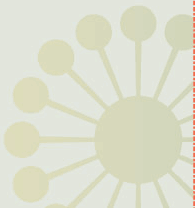WILL YE NO COME BACK
AGAIN? A San Francisco raconteur was once asked about his belief in reincarnation and replied, "I didn't believe in reincarnation in any of my other lives. I don't see why I should have to believe in it in this one." There are some things that exist by believing in them, and others that exist despite our beliefs. The latest survey by the Pew Forum on Religion and Public Life (December 2009) reports that 24% of all Americans believe in reincarnation (28% for Catholics, a number much greater than a previous poll). What the survey does not show is why people believe in reincarnation. What evidence or rational process helps to shape one’s belief? The scientific studies by Ian Stevenson, Jim Tucker, and others have been accepted as legitimate by many, but they have also been refuted by persons like James Webster. It always comes down to a matter of faith, whether it’s belief in reincarnation as a religious principle or belief in the legitimacy of the empirical studies. My own encounter with reincarnation occurred when I attended a gathering of persons who were listening to a discarnate entity named Katrinka (“Katey”) Knockstead who spoke through a trance medium. Those in the group were asking about previous lives and received a variety of answers ranging from nuns to witches, philosophers to royalty. When it became my turn, I expected something profound and exciting, but was told simply that in my last incarnation I had been a dirt farmer in Idaho in the nineteenth century. I asked Katey, “Wasn’t I anyone of historical note, someone whom I could check out?” Of course, a thousand people have claimed to be Napoleon or Abraham Lincoln or other well-known celebrities of the past. Katey paused and then said, “Well, you had been Philip Yorke, the first Earl of Hardwicke.” I had no idea who that was and I was sure that the retired postal worker who was channeling Katey would have less of an inkling. From childhood I have had a fascination with Celtic stories, read many of the novels of Sir Walter Scott, and later became interested in Celtic spirituality. What a surprise it was to learn that Philip Yorke was the English jurist who sentenced many of the Jacobite rebels to be hanged after the battle of Culloden. Even though I believed Bonnie Prince Charlie to be a pompous blaggard, there was still the romantic story of Flora MacDonald rowing him over the sea to Skye. Hardwicke would have been delighted to lay his hands on the cowardly prince. Was the medium reading my mind, and how could this uneducated man come up with an obscure name? There were many questions. It was an interesting experience, but it certainly wasn’t definitive proof. There are many other anecdotal accounts suggestive of reincarnation—hypnotic regression to pre-birth existence, children from Shanti Devi to James Leininger (Soul Survivor), who remembered previous lives, the tale of Bridey Murphy that was entertaining, but not taken too seriously, and the birthmarks that Ian Stevenson reported in his studies that may have been indicative of past-life trauma. It is interesting, but is it proof? The belief in reincarnation was certainly present in the early church. Origen, Synesius, and other church fathers were known as the pre-existiani, maintaining that the soul existed before its present incarnation. Others believed that the soul could be incarnated again. The doctrine of reincarnation was rejected by the Council of Constantinople in 553 as incompatible with the Christian faith. It was a political move orchestrated by the Emperor Justinian and his wife, Theodora, a devout Monophysite, that removed the doctrine from the canons of the church. Today there are many persons who believe in reincarnation because it makes sense to them and answers many of the questions relating to the mystery of life and the “why” of our being Dr. Harry L. Serio |
|
